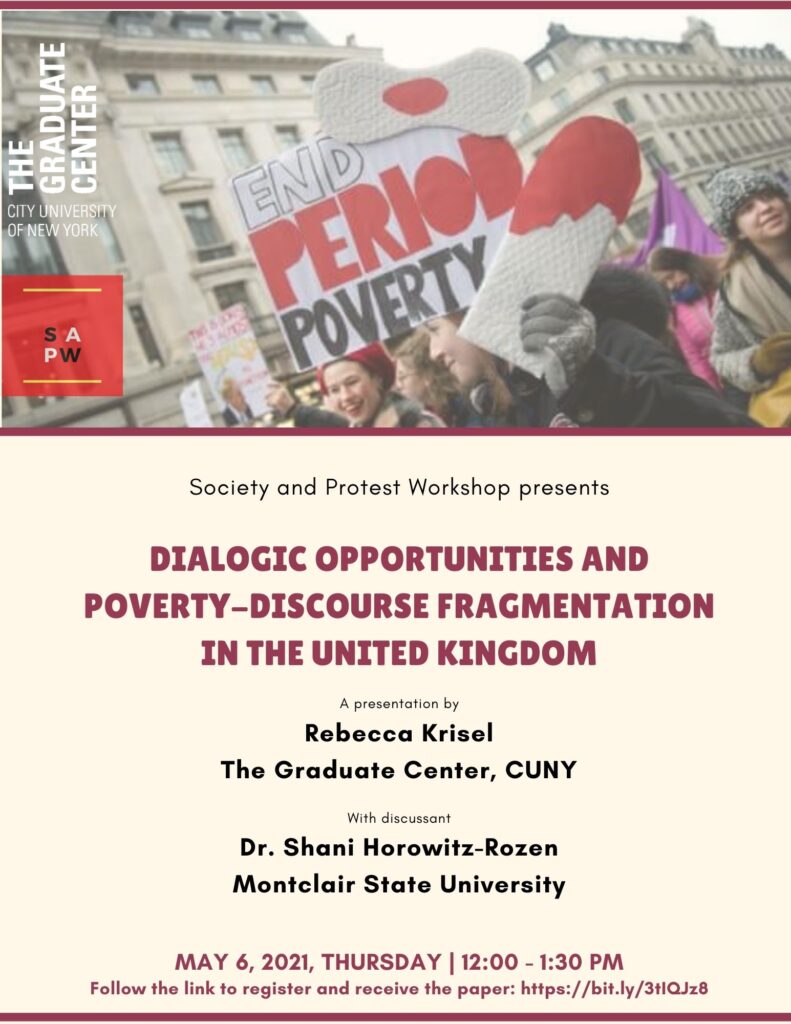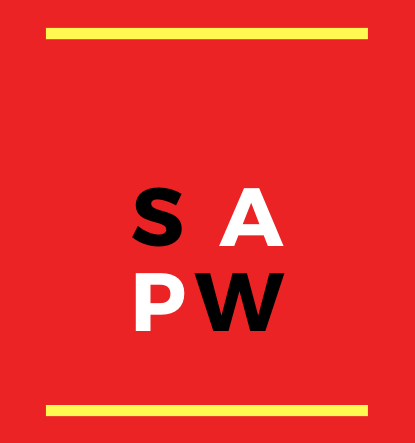by Rebecca Krisel
May 06, 2021 | 12:00- 1:30 PM
Click here to register for the event

Poverty discourse in the United Kingdom (U.K.) has become increasingly fragmented: the conversation has shifted from being about poverty at large to being about specific segments of poverty, such as period poverty, food poverty, funeral poverty, child poverty, energy poverty, clothing poverty, among others. This fragmentation of poverty discourse emerged alongside ongoing austerity measures, which have resulted in increases in poverty levels. However, while some say that the fragmentation of poverty discourse is leading the government to provide temporary fixes to poverty issues (e.g., free menstrual products in response to period poverty) while avoiding systemic and structural policy solutions to chronic poverty, others see opportunity in the fragmentation of poverty discourse in galvanizing experts, advocates, and citizens around specific areas of poverty that may make solutions appear more tangible. By contrasting the fragmented poverty discourse to that of the more generalized anti-austerity movement, this article will seek to shed light on three related questions with respect to discourse in policy debates: How do media gatekeepers (i.e., media executives, editors, producers, and reporters) and claimsmakers (e.g., activists and lobbyists) interact to legitimize and disperse fragmented claims? How does discourse fragmentation help or impede the chances of a claim of being covered in traditional media outlets? How does media coverage of fragmented discourse help or impede policy solutions to the claim? To address these questions, this article puts forth the dialogic opportunity structure, a framework to determine the fate of a claim in terms of its coverage in traditional media outlets based on its hegemonic or non-hegemonic qualities, the stability (embedded in public culture) or volatility (emerging or short-lived) of its dialogic opportunities, and its open or closed discursive opportunities (i.e., the ability for a message to be accepted or rejected in the public sphere).
About the Author
Rebecca Krisel is currently a doctoral candidate in political science at the CUNY Graduate Center, where her research focuses on the intersection of digital communication technologies, internet-based social movements, and policymaking.
She received a Master of International Affairs from Columbia University School of International and Public Affairs (SIPA) and a Bachelor of Arts from Wesleyan University.
About the Discussant
Shani Horowitz-Rozen is an Adjunct Professor at Montclair State University School of Communication and Media. She is also the Founder of Communicating Impact Consulting, which works with nonprofit organizations to develop their internal and external communications strategies. Shani writes on media topics for Ha’aretz and is an alum of the International Fellows Program the Center on Philanthropy and Civil Society at the Graduate Center, CUNY. She holds a PhD in Communication and Media Studies from Bar-Ilan University in Ramat Gan, Israel, where her dissertation focused on the framing of philanthropy in Israeli media discourse. Shani has worked in corporate social responsibility and the development of scholarship programs in Tel Aviv.


